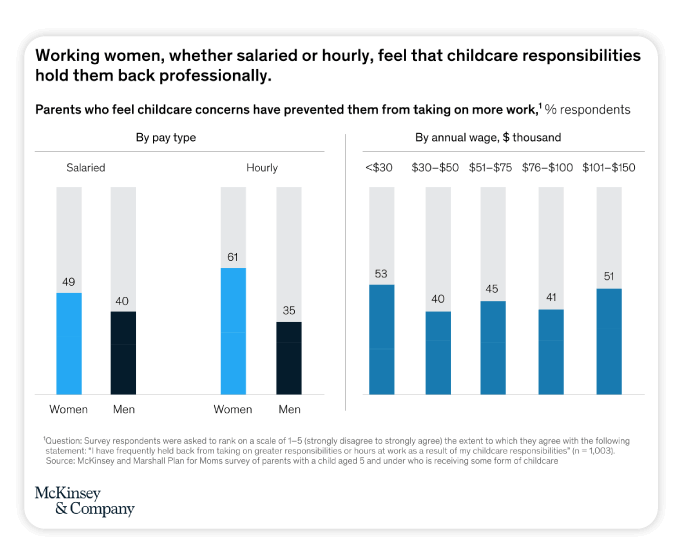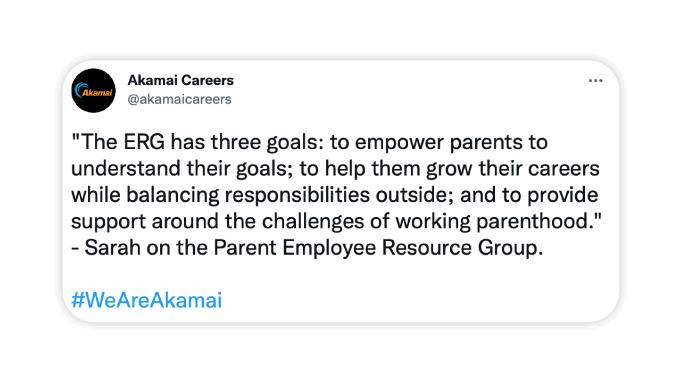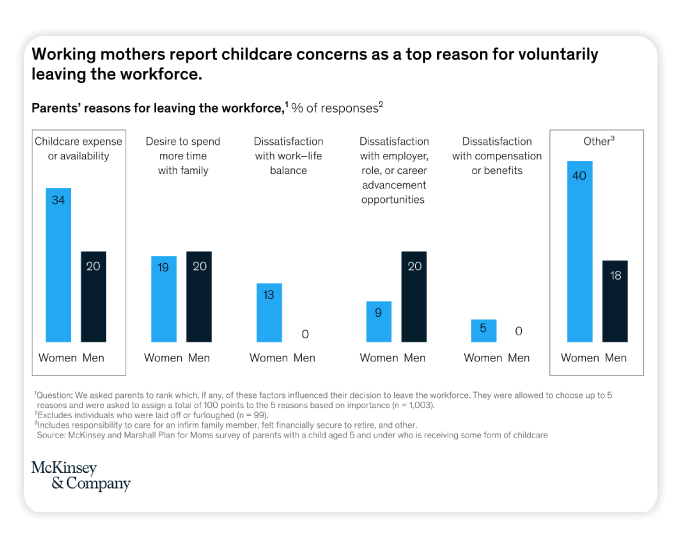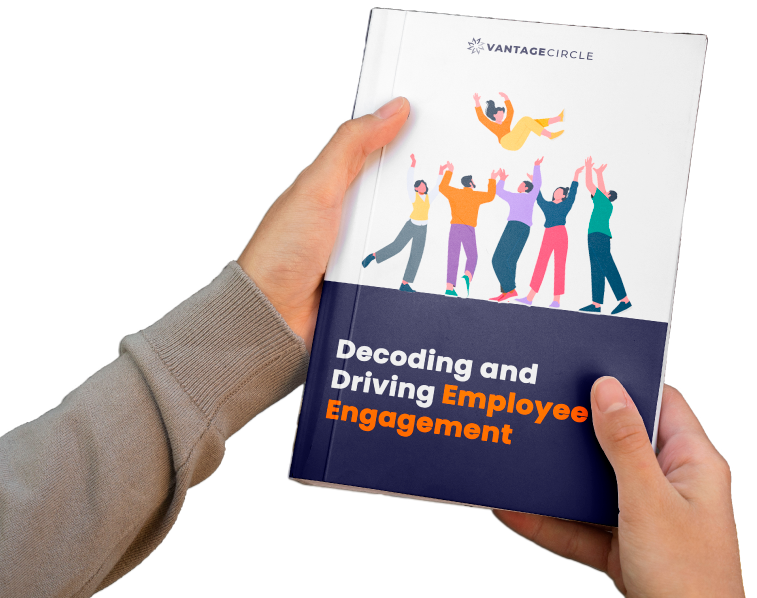8 Thoughtful And Amazing Ways To Celebrate Working Parents Day
Whether juggling daycare, school pick-up or drop-off, attending parent-teacher meetings, helping kids with homework, or cheering in the games. Working parents pretty much do it all.
Recognizing their dedication, sacrifice, and tireless efforts, the world observes National Working Parents Day. It is celebrated on the 16th of September each year. The day commemorates those amazing and inspiring working parents who overcome all odds for the well-being of their families.
Working parents are taking work home and not necessarily being compensated. The number of hours parents are spending on work is astronomical.
~ Barbara Schneider
Simply, put, the annual event honors the unbreakable spirit of working parents. But what good is celebrating the day if you don’t understand and acknowledge the issues that working parents face?
Making the corporate world more supportive of working parents would be difficult without first understanding their challenges.
So, all HR professionals delve deep and get into the crux of the problem.
Challenges Faced by the Working Parents
A study on working parents published in the International Journal of Human Resource Studies underscored five main areas of concern:
- Work-life conflict
- Stereotyping
- Exhaustion
- Changing work schedules, and
- Career growth opportunities
Let’s explore each of these challenges in a bit more detail:
1. Work-life Conflict

The challenge of work-life balance is one of the most significant struggles modern man faces.
~ Stephen Covey
It should not come as a surprise if working parents deal with work-life conflict. After all, they are mostly bogged down with enormous responsibilities. That stands true on both professional and personal fronts.
But what’s concerning is the impact work-life conflict creates on them.
Work-life conflicts negatively affect the two key facets of an individual’s life. The consequences of which are:
- Job Dissatisfaction
- Physiological problems such as persistent fatigue, eating disorders, increased blood pressure, etc
- Psychological problems like depression, anxiety, or panic attacks.
- Marital and family discontentment
Moreover, children are the most affected when their working parents face work-life conflicts raising concerns about issues like internet safety for kids. When parents struggle to balance work and family life, they may have less time to monitor and guide their children's online activities, potentially putting them at risk online and influencing their perceptions of family dynamics.
Kids may become irritated or concerned if they see their parents struggle to balance work and family life satisfactorily. It can negatively impact how they view their parents and family dynamics.
Kids may become irritated or concerned if they see their parents struggle to balance work and family life satisfactorily. It can negatively impact how they view their parents and family dynamics.
2. Stereotyping

Parents who are working are sometimes stereotyped as less committed to work. People assume that working parents would always divide their attention between work and family.
People assume that working parents would always divide their attention between work and family.
But this assumption is problematic. Commitment to one’s work is not affected by parenthood. Although, the priority, in most cases, might always be the family. And, why should it not be?
After all, parenthood is a critical responsibility. And this is especially true for those who have young children. Although work is an inevitable part of life, caring for and nurturing one’s children is also imperative.
3. Exhaustion or Burnout

A new report published by the Ohio State University states that:
66% of working parents meet the parental burnout criteria. The figure is a clear indication that parents are exhausted.
But what’s more worrisome is that the exhaustion is here to stay.
Yes, you’ve read it right!
The author of the report believes that a lack of practical and structural support to overcome stress will result in exhaustion. The result stands true, especially for working parents. And if no measures are taken to redefine the support system, burnout or exhaustion will be prolonged.
Prolong parental burnout may have undesirable effects. That makes it indispensable to understand atleast the basic definition of parental burnout. As Dr. Jennifer Yen, a psychiatrist at UTHealth Houston, said:
As with burnout, parental burnout is defined as physical, emotional, and mental exhaustion due to the ongoing demands of caring for one’s children.
4. Changing Work Schedules

Changes in work schedules are hard to cope with. Add to that a heavy workload, erratic child-care availability, and lack of support while adapting to new work schedules.
These are some of the many problems that parents in the corporate deal with. Due to this, it is pretty obvious that they get exhausted and feel stressed out. But the concerning part of all the chaos is its negative impact on one’s health.
Yes, inconsistent changes in schedules affects a person’s health and well-being. Moreso, if the inconsistency is due to the juggling between work and child-care.
5. Career Growth Opportunities

Source:McKinsey & Company, 2022
Many women view motherhood as the end of their careers. The reason for such a perception could be lack of time to pursue career goals. Or, simply the absence of proper guidance and support.
But, whatever the reason, most women are bound by circumstances to give up their careers post motherhood. Careers of men, however are not majorly affected due to fatherhood. But adapting to a new lifestyle is difficult for fathers as well. As a result, they feel hesitant to take up more promising opportunities.
The reluctance to take on responsibilities at work has its own share of drawback. Over a period of time, a blurred career growth trajectory demotivates both men and women. But, especially women.
Now, as you are aware of the problems parents face at work. Here are eight key ways to support them. Supporting will be a wonderful way of celebrating.
So, let’s begin.
8 Amazing Ways for HRs to Celebrate National Working Parents Day
1. Recognize and Appreciate the Working Parents

To be a good father and mother requires that the parents defer many of their own needs and desires in favor of the needs of their children. As a consequence of this sacrifice, conscientious parents develop a nobility of character.
~ James & Faust
Parenting is a dynamic job role in itself. If you couple it with professional commitments, it becomes a daunting task. But surprisingly, working parents have been doing it tirelessly ever since.
Don’t you think they deserve some kudos for it?
Well! If you want to recognize and appreciate working parents, here is the day. Let all your working parent colleagues know how much you value their presence, contributions, and sacrifices. Recognize their dual efforts and appreciate them.
As an HR professional, encourage your organization's leaders to thank all the working parents. You can request the managers or team leaders to pen down a heartfelt appreciation note. The message should be encouraging and must resonate with them.
You can send the message via email to all the parents in your organization.
Recommended Resource:33 Amazing Employee Appreciation Ideas 2022
2. Foster Employee Resource Group

Source: Twitter
It takes a community to raise a child. You can ask any parent, and they shall confirm. Having a community’s back while raising a child is crucial for parents, especially working parents.
But how about building a community in the workplace itself? Don’t you think working parents will find it a great support system?
Communities like Employee Resource Groups (ERGs) are a new phenomenon in the corporate world. These inclusive peer-led groups offer an excellent place for employees with similar lifestyles. In these groups, employees can come together to share their stories, insights, connections, and experiences.
For all dedicated working parents, ERGs can be a boon. So, as an HR practitioner, institute one such group. If you already have one in your organization, try to make it more effective and efficient.
3. Provide Flexible Working Options

One of the biggest things employers are doing to accommodate working parents is the availability of flexible work schedules.
~ Georgene Huang, CEO, and Co-Founder of Fairygodboss
Have you ever wondered who needs flexible working options the most? It is the working parents.
All employees find it difficult to manage everything with a traditional 9-5 job. Working parents find it impossible to get all their work done within this time slot.
So, offering them flexible work arrangements is the need of the hour. Flexible schedules can assist parents in getting their work done without compromising on their work-life balance. It has the potential to immensely boost employee productivity and morale as well.
As an HR professional, focus on creating a work culture that prioritizes getting the work done over the “when” factor. If you do go the flexible work route, traditional time tracking will be a major roadblock to your employees’ work schedules.
Also, don’t you feel it would be considerate to keep all communication channels open for parents? As every parent is different, so flexibility for each parent will differ accordingly. Creating an empathetic communication network within the organization will greatly assist all parents.
4. Re-evaluate the Quality of the Benefit Packages

Post-pandemic, parents around the globe have realized that simply having a job is not enough. It is equally imperative to work in an organization that respects parental commitments. At the same time, supporting them in their pursuit of fulfilling those commitments. And it is newfound wisdom that the most thoughtful and efficient form of support is creating benefits package that is indeed beneficial.
The quality of the benefits package expresses how invested an organization is in employee well-being. The better the quality, the more contented and productive the working parents, will be. Also, it is important to note that sound packages ensure retention and drastically eliminate stress and burnout among employees.
According to a CNBC Report, 9.8 million working mothers in the United States suffer from burnout.
Employees may seek very basic benefit packages, but as an HR, you must evaluate the packages from time to time. Including working parents’ insights while designing the packages or policies would also be thoughtful.
Educate and update your employees about the benefit packages in your organization at frequent intervals.
5. Introduce or Re-assess the Childcare Policies

In a National Panel Survey by Harvard Business Review,
Out of 2,500 working parents, nearly 20% had to leave jobs or reduce working hours solely due to a lack of childcare.
The future of work will be more fluid than in the past. Employers will now have to develop robust policies that benefit all, including parents in their organization. And to support parents, childcare policies undoubtedly have to undergo a revamp. After all, the lack of proper childcare support has become the driving force for many working parents quitting their jobs. It stands true, particularly for women.
But, a concise and effective childcare support will mitigate the problem. HRs will be surprised to know that even these seemingly simple benefits, like onsite childcare, can have a massive impact on business output. Some of the employer-supported childcare effects are:
- Attracts talented people by providing a more conducive working environment.
- Enhances employee life-cycle by retaining talents.
- Improves employee productivity, resulting in quality output.
- Boost the goodwill and reputation of the organization.
Affordable, quality childcare is one of the four-family friendly policies that UNICEF recommends for workplaces.
So, if you want your workforce to work at full capacity, good childcare policies have to be in place.
6. Call in Professional Counselors or Life Coach

Parents working in corporate faces innumerable challenges. The efforts to balance career and family can be comparable to climbing a mountain with rocks in bag. The consequence of such an experience could result in persistent stress or anxiety.
So, don’t you think providing professional help to working parents would be an empathetic move?
Professional counselors can assist parents in coping with stress and train them to manage their work-life better. Parent counseling can help them set realistic goals. Also, please encourage them to accomplish those goals in the long run. Counseling could also help strengthen bonds between couples and their children.
Considering the benefits, calling in counselors would be a wonderful way to celebrate Working Parents Day. Professional counselors will be able to provide a better sense of direction to the struggling parents.
Call in a certified and experienced professional. Also, ensure that the privacy of all the parents shall be maintained.
7. Present Family Gift Hampers

Ask around, and you’ll find that gift hampers are loved by all. More so if it is thoughtfully curated for the entire family. Offering gifts is anyway an expression of care and recognition. Employees feel valued, and it reflects in the way they begin perceiving their organization.
Gifting working parents on National Working Parents Day again has great significance. It becomes a token of appreciation and respect for their countless sacrifices to balance various fronts of their lives.
But, keeping all of it aside, gifts make them and their kids smile. Kids feel a sense of pride and take an interest in their parents’ work when they see such recognition being offered.
Try to add a personal touch to the gift hamper. Also, you can present a hand-written note acknowledging the parents and appreciating their kids.
Recommended Resource: The Ultimate Guide To Corporate Gift Ideas for Employees in 2022
8. Support Working Mothers!

Source: McKinsey & Company, 2022
As mentioned in the latest Mckinsey & Company report,
Working mothers report childcare concerns as a top reason for voluntarily leaving the workforce.
And this should not be the case.
If women participated in the workforce at the same rate as men, United States GDP could be 5% higher. But what is holding women back?
You would be disappointed to know that it is the lack of support. Businesses don’t have childcare infrastructure. Because of this, women either look out for flexible jobs or quit their careers altogether.
But, this has to change.
As an HR professional, create more policies that encourage women and provide them required flexibility. Motivate them to pursue their careers while nurturing their children efficiently.
If you can implement women or mother-friendly policies, things will change for the better.
In Closure
Celebrate not a day called “National Working Parents Day." Instead, celebrate the significance behind it. Analyze the innumerable problems faced by working parents. Try to come up with effective solutions to those problems. And you’ll see that striking a balance between work-life will become as easy as pie for all parents.
















